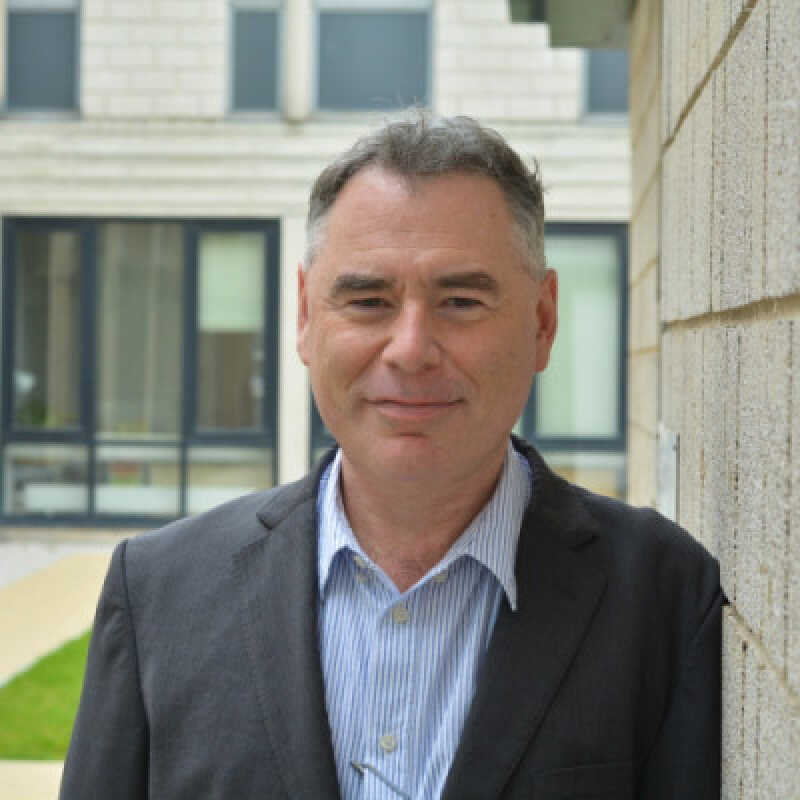- University of Kent
- School of Computing
- People
- Professor Howard Bowman
Professor Howard Bowman


Despite what my friends and family might think, I do have some interests outside academia. For example, I have in the past done a lot of drawing.
I belong to the following research groups:
Keywords: Human Attention, Conscious Perception, Emotions, Neural Modelling, Symbolic Modelling, EEG Recording and Analysis Methods, Formal Methods and Concurrency Theory.
My main research focus is cognitive, computational and applied neuroscience, although I have previously worked on formal methods.
In a broad sense, I am interested in how the mind emerges from the brain to generate a spectrum of cognitive capacities. In this respect, I undertake work focusing on the following capacities: perception, consciousness, attention, language, emotions and decision-making. I study these topics using a mixture of methods, which includes behavioural and electrophysiological (EEG) experimentation and connectionist and symbolic modelling.
Study of these topics is especially timely, since modern brain imaging techniques are beginning to reveal the physical mechanisms from which cognition emerges, thus, enabling biologically plausible models of cognition to be constructed.
I also perform an increasing amount of research on clinical and forensic applications of neuroimaging, as well as methods development to refine the analysis techniques applied in neuroimaging.
I have work on the following topics:·
Formal Methods are mathematically based specification and analysis techniques. They allow the behaviour of systems to be described abstractly, i.e. without having to prescribe implementation details, and then they enable this behaviour to be analysed. Such analysis might amount to checking that a particular property holds over a system or that a certain form of degenerate state cannot be reached.
I have performed research on both the theory underlying formal methods and on application of these methods. I have previously worked on a number of topics, which include the following areas.
My teaching is in the area of Cognitive and Computational Neuroscience. Specifically, I teach a course on how the brain implements the mind. This focuses on the neural networks in the brain, how they compute, learn and support cognitive capacities, such as, memory perception and language. The key course that covers this material is Cognitive Neural Networks.
If you are interested to perform research, especially at PhD level, in any of these areas, mail me.
The following are particular suggestions for PhD work:
The following pages give further general information about my teaching and research activities:
o Formal specification of distributed multimedia systems. G.S. Blair, L. Blair, H. Bowman, and A. Chetwynd. University College London Press, September 1997.
o Concurrency Theory: Calculi and Automata for Modelling Untimed and Timed Concurrent Systems. H. Bowman and R.S. Gomez. Springer, January 2006.
o FMOODS'97, IFIP TC6 WG6.1 International Conference on Formal Methods for Open Object-based Distributed Systems. Howard Bowman and John Derrick, editors, volume 2, Canterbury, UK, July 1997. Chapman and Hall.
o Formal Methods Elsewhere. Howard Bowman, editor, volume 43 of Electronic Notes in Theoretical Computer Science. Elsevier Science, June 2001. A Satellite Workshop of FORTE-PSTV-2000 devoted to applications of formal methods to areas other than communication protocols and software engineering.
o Formal methods for distributed processing, a survey of object-oriented approaches. H. Bowman and J. Derrick, editors. Cambridge University Press, Cambridge, UK, September 2001. Copies of this publication can be orderd here.
o Proceedings of the eighth neural computation and psychology workshop, connectionist models of cognition and perception II. H. Bowman and C. Labiouse, editors, volume 15 of Progress in Neural Processing, Singapore, April 2004. World Scientific. Copies of this publication can be ordered here.
The Matlab code for our Psychological Review article can be accessed here.
Loading publications...
Showing of total publications in the Kent Academic Repository. View all publications